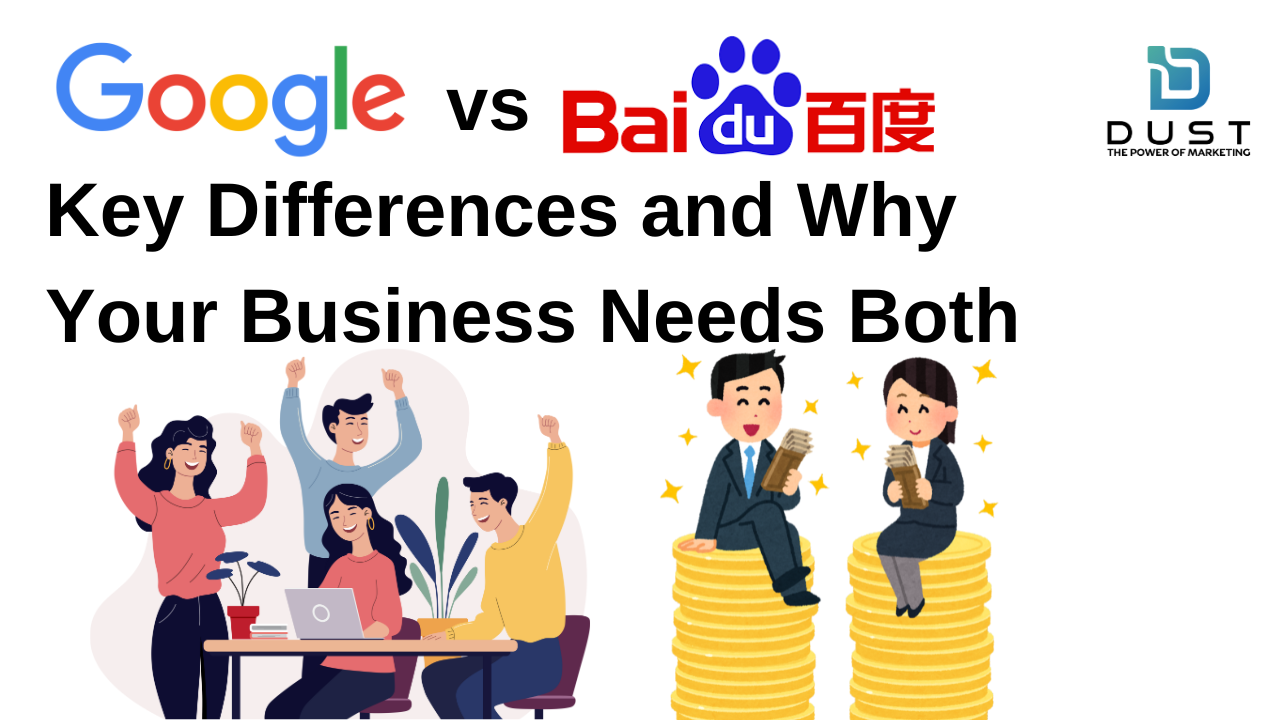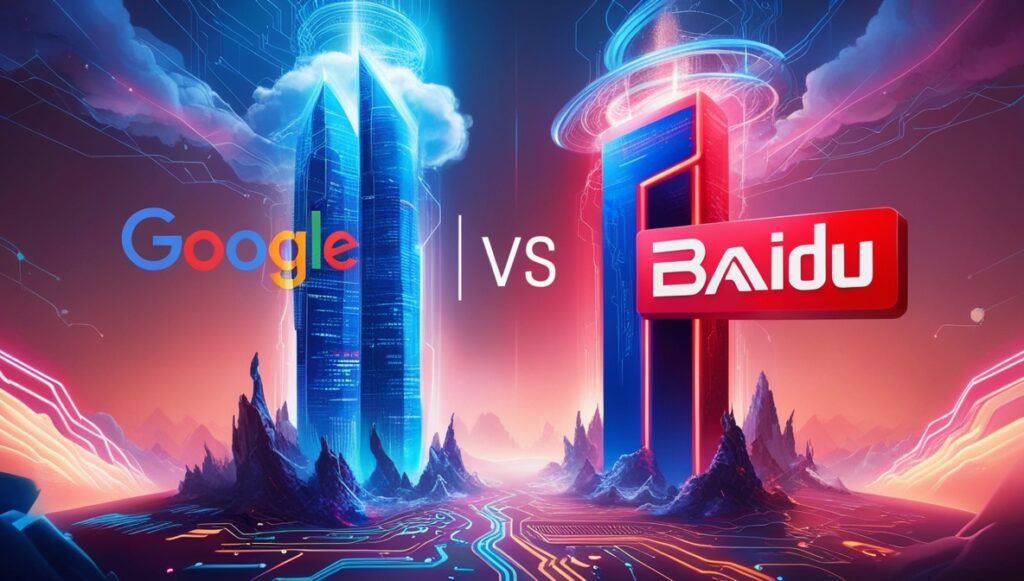
In the global landscape of search engines, Google and Baidu stand as titans in their respective regions. Google dominates the worldwide market, while Baidu reigns supreme in China. Understanding the differences between these two search engines is crucial for businesses looking to expand their digital presence internationally. This comprehensive guide will explore the key differences between Google and Baidu, their unique features, and how leveraging both can benefit your business. We will also highlight why Dust Digital Marketing Ltd. is the perfect partner to navigate these platforms and optimize your SEO strategy.
Introduction to Google and Baidu
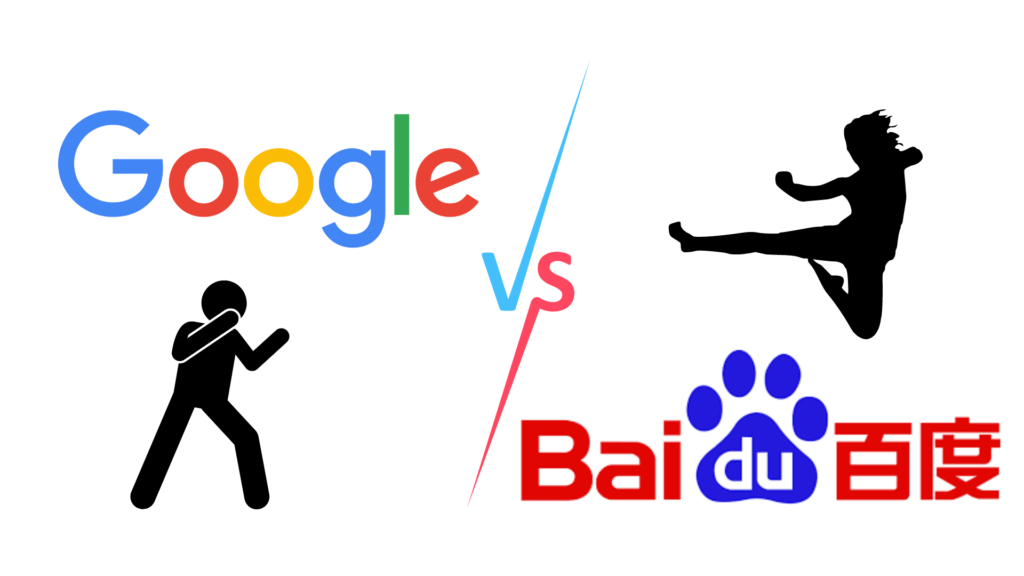
Google: Google, founded in 1998, is the most widely used search engine globally. It offers a multilingual platform with country-specific domains to provide users with localized search results and services tailored to specific regions.
Baidu: Baidu, established in 2000, is the leading search engine in China. It primarily focuses on Chinese language content, making it the preferred choice for users seeking information in Chinese, particularly simplified Chinese.
Market Share and User Base
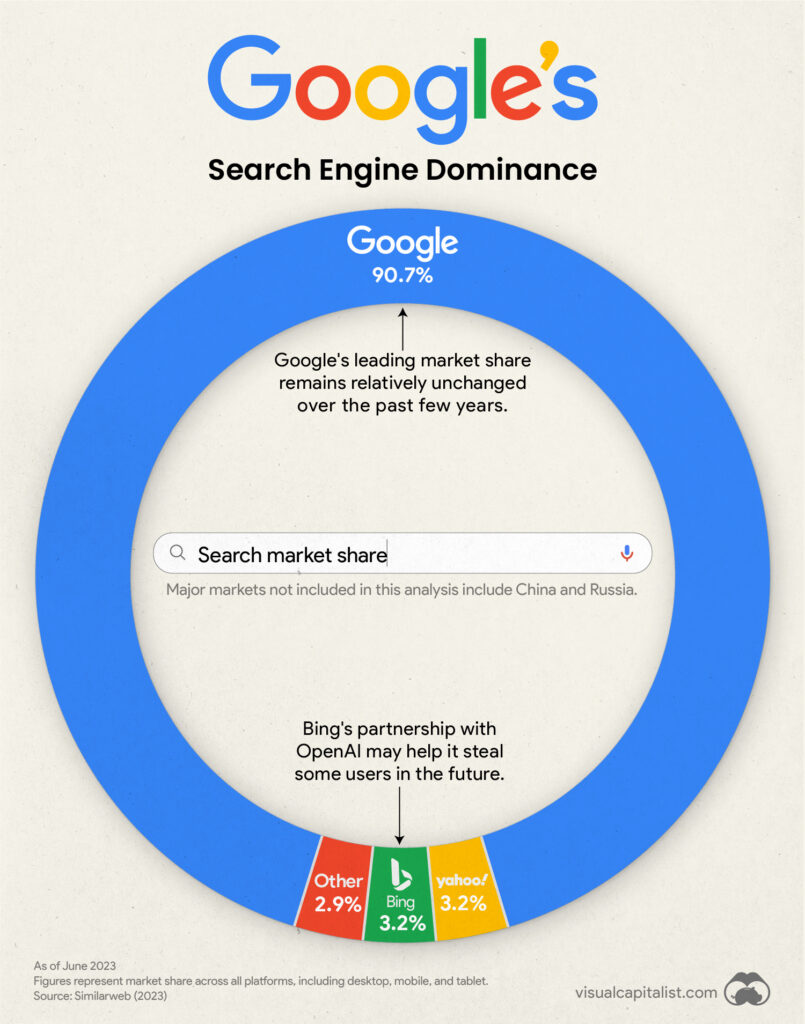
Google: With a market share of over 90% globally, Google serves billions of searches daily. It is the default search engine in most countries outside of China.
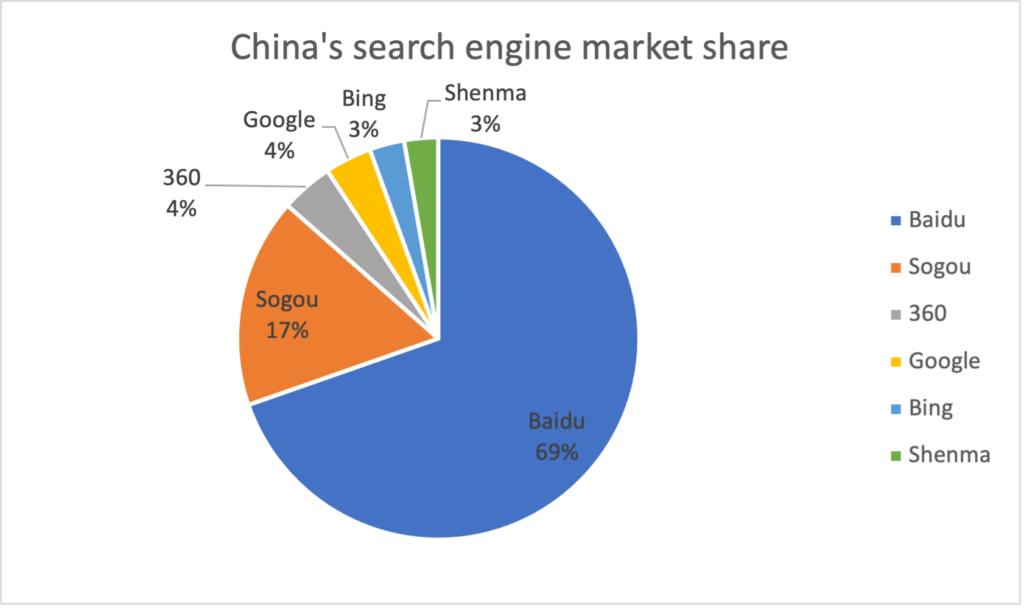
Baidu: Baidu holds over 70% of the search engine market share in China, serving hundreds of millions of users. Its dominance in China is comparable to Google’s global presence.
Language and Localization
Google: Google’s strength lies in its multilingual platform, supporting over 100 languages. It uses country-specific domains (e.g., google.com, google.fr, google.cn) to provide localized search results and services tailored to different regions.
Baidu: Baidu primarily focuses on Chinese language content, catering specifically to users who seek information in simplified Chinese. This focus makes Baidu the preferred search engine for Chinese speakers and those looking for content relevant to China.
Search Algorithms and Features
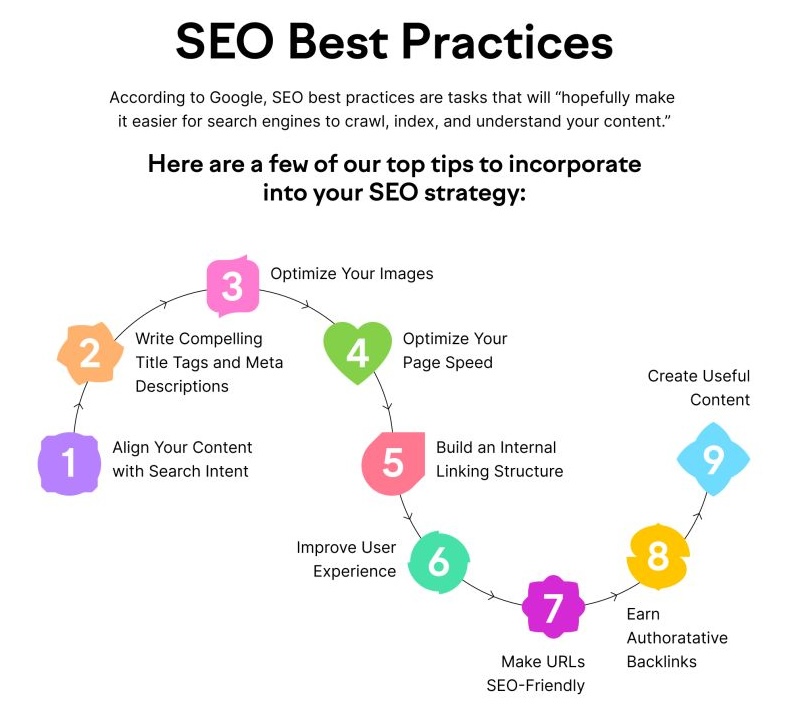
Google: Google’s search algorithm, known as PageRank, evaluates the relevance and authority of web pages based on numerous factors, including backlinks, content quality, and user experience. Google also offers various features like rich snippets, featured snippets, and knowledge graphs to enhance search results.
Baidu: Baidu’s algorithm places a strong emphasis on Chinese language content and local relevance. It also prioritizes Baidu’s own properties and services in search results, such as Baidu Baike (a Wikipedia-like service) and Baidu Tieba (a forum platform). Baidu’s algorithm is tailored to the preferences and behaviors of Chinese users.
Advertising Platforms
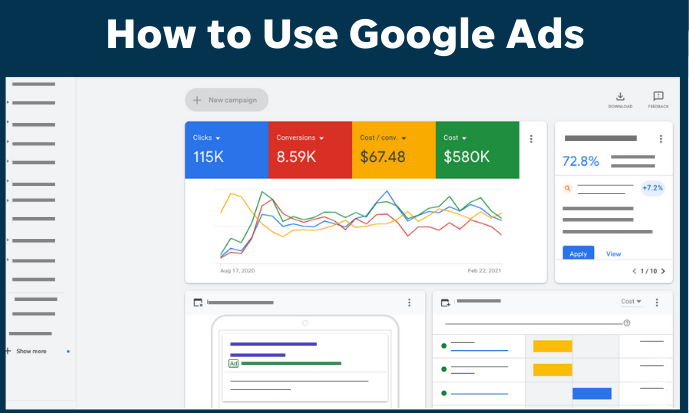
Google Ads: Google’s advertising platform, Google Ads, allows businesses to create targeted ads that appear in search results and across Google’s extensive network of partner sites. Google Ads offers a variety of ad formats, including text, display, video, and shopping ads.
Baidu Ads: Baidu’s advertising platform, Baidu Ads, provides similar capabilities but is optimized for the Chinese market. Baidu Ads offers various ad formats, including search ads, display ads, and in-feed ads. It also integrates with Baidu’s ecosystem, such as Baidu Maps and Baidu Baike, to enhance ad visibility.
Mobile Search and App Integration
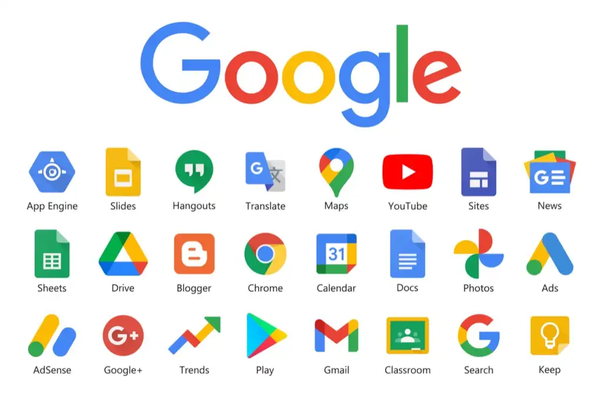
Google: Google’s mobile search experience is seamless, with strong integration with Android, the world’s most popular mobile operating system. Google’s apps, such as Google Maps, Gmail, and YouTube, are widely used globally.
Baidu: Baidu’s mobile search is optimized for the Chinese market, with integration into Baidu’s suite of mobile apps, such as Baidu Maps, Baidu Browser, and Baidu Tieba. Baidu also offers app distribution through its own app store, which is popular in China.
Content and Censorship

Google: Google operates under varying degrees of government regulations depending on the country. While it advocates for an open internet, it must comply with local laws, which can include content restrictions in certain regions.
Baidu: Baidu operates under strict Chinese government regulations, which include content censorship and filtering. As a result, search results on Baidu are heavily regulated, with certain content being restricted or removed entirely.
SEO Best Practices for Google and Baidu
To effectively optimize your website for both Google and Baidu, it’s important to understand their unique SEO requirements:
Google SEO Best Practices:
- High-Quality Content: Focus on creating informative, engaging, and original content.
- Backlinks: Build a strong backlink profile from reputable websites.
- Mobile Optimization: Ensure your site is mobile-friendly and has fast loading times.
- User Experience: Enhance user experience with easy navigation and quick access to information.
Baidu SEO Best Practices:
- Chinese Language Content: Create content in simplified Chinese to cater to Baidu’s user base.
- Host Locally: Host your website on Chinese servers for better speed and performance.
- Meta Tags: Use meta tags effectively, as Baidu places more emphasis on them than Google.
- Baidu Services Integration: Leverage Baidu’s own services, such as Baidu Maps and Baidu Baike, for better visibility.
Why Choose Dust Digital Marketing Ltd.?
Navigating the complexities of both Google and Baidu SEO requires expertise and local knowledge. At Dust Digital Marketing Ltd., we specialize in helping USA businesses optimize their presence on both platforms. Here’s why you should partner with us:
- Expertise in Both Platforms: Our team has in-depth knowledge of Google and Baidu’s algorithms, ensuring your business is optimized for both search engines.
- Localized SEO Strategies: We create tailored SEO strategies that consider cultural nuances and local preferences, maximizing your visibility in both markets.
- Comprehensive Services: From keyword research and content creation to link building and performance tracking, we offer a full suite of SEO services.
- Proven Track Record: Our successful track record with clients across various industries demonstrates our ability to deliver results.
Conclusion

Understanding the differences between Google and Baidu is crucial for any business looking to expand its digital footprint internationally. By leveraging both search engines, you can tap into a global audience and maximize your reach. Partnering with Dust Digital Marketing Ltd. will ensure that your SEO strategy is tailored to both platforms, helping you achieve success in both Western and Chinese markets.
Call to Action
Ready to optimize your business for Google and Baidu? Contact Dust Digital Marketing Ltd. today and let our experts guide you through the process. Together, we can unlock new opportunities and drive your business to new heights.

